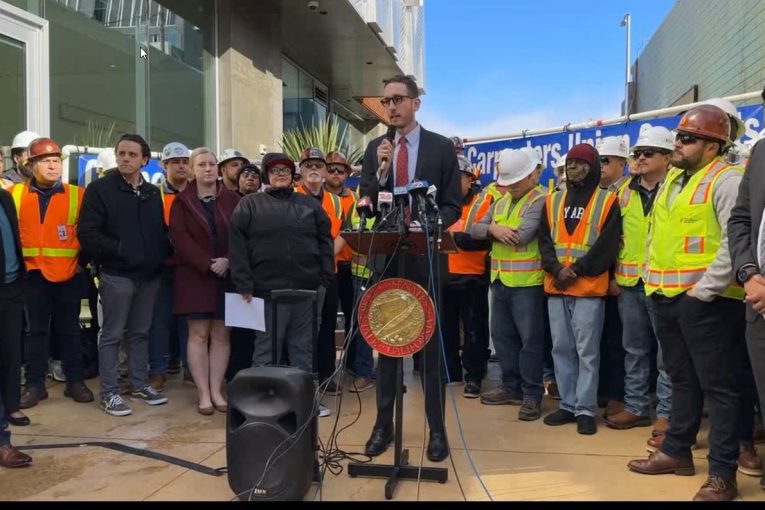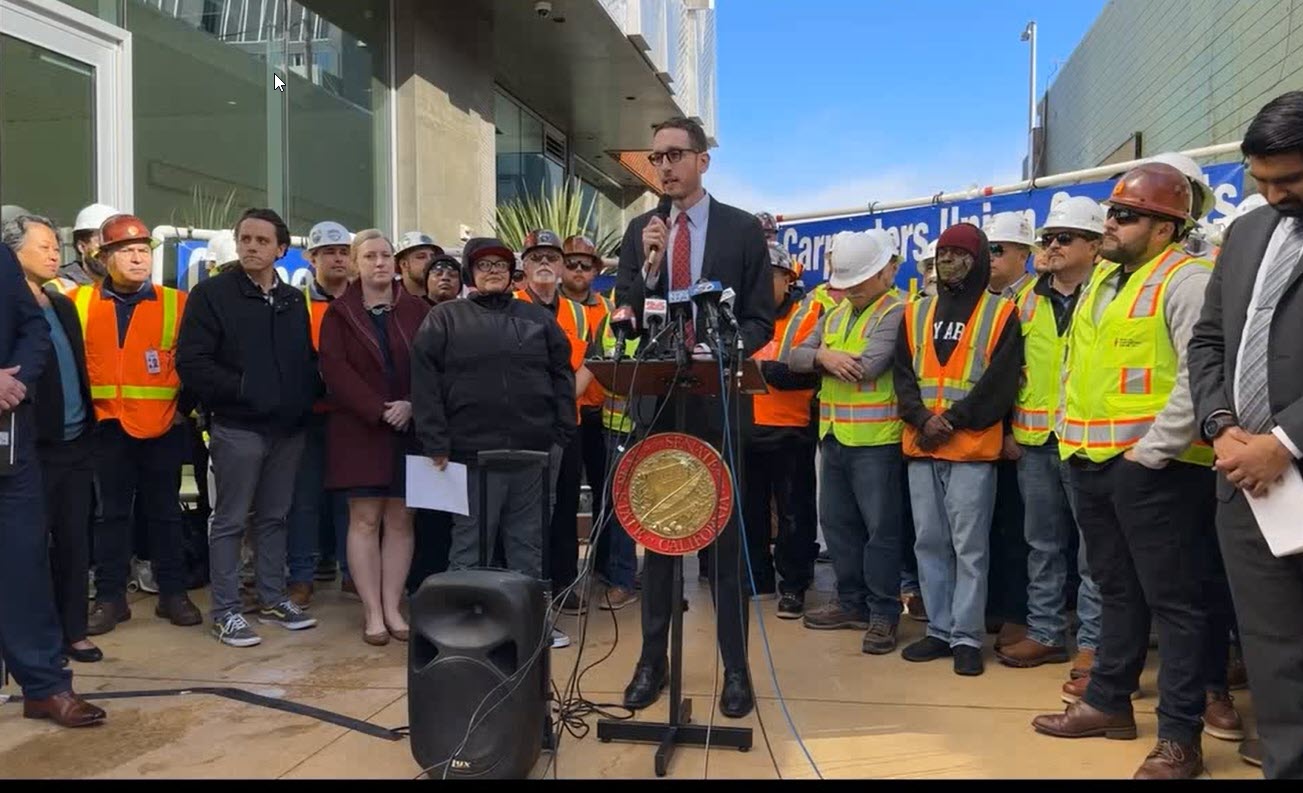

Special to the Vanguard
Sacramento, CA – SB 423, which would extend and expand the “Builder’s Remedy” gained some critical support. On Monday, the Northern California District Council of Laborers released a letter in support of SB 423.
The Laborers join the California Conference of Carpenters in support of the legislation, and together the two unions represent hundreds of thousands of skilled construction workers.
“I’m thrilled to add the Laborers to the growing chorus of support for extending and strengthening one of our state’s most effective tools for building affordable housing,” said Senator Scott Wiener. “SB 423 is a worker-led bill, extending new wage and health care requirements to hundreds of thousands of workers. Workers are essential to tackling our state’s housing shortage, and SB 423 is a big step forward.”
SB 423 removes the sunset of SB 35, which is set to expire at the end of 2025. It also expands that law’s ability to deliver mixed-income housing developments and broadly benefit construction workers through changes to SB 35’s labor provisions.
In a February press conference, Senator Wiener explained that, according to data from UC Berkeley’s Terner Center, they found that in the first four years the bill was in effect, 18,000 units of housing have either been approved or are in the process of being approved under SB 35, and “three-quarters of those units are below market rate.
“We are desperately in need of new homes in California. We are short millions of homes,” Senator Wiener said. He added, “SB 35 is a good government measure that will allow us to accelerate home construction. It’s very simple. If you meet all the rules, you meet the zoning and setbacks and designs and everything else, you, you get your permit without a hyper-politicized, chaotic, process that can take years, uh, and lead to litigation because anyone who has an attorney can challenge you.”
According to a release from Senator Wiener’s office, SB 35 works by granting streamlined approval—also known as ministerial approval—to certain housing projects proposed in areas that are out of compliance with the state’s housing planning process, RHNA.
These projects are granted ministerial review, which means that CEQA does not apply and cities are prohibited from applying discretionary processes.
For projects that are covered by SB 35, permits must be issued in 3-6 months, depending on the size of the project.
To qualify for SB 35, projects must be:
- Multi-family (at least 2 units)
- Located on an infill site
- Comply with objective zoning and design standards,
- Meet minimum affordability requirements, and
- Meet other locational and demolition restrictions.
“The degree of noncompliance determines what projects are granted streamlined, ministerial review under SB 35,” Senator Wiener’s office noted. “If a local government fails to submit their latest required Annual Progress Report, or they fail to permit their share of above-moderate income units, then projects get streamlined approval if 10% of units are affordable to lower-income households earning below 80% of AMI. If they meet their above-market-rate goals but fail to permit their share of lower-income and very low-income units, projects get streamlined approval if 50% of the proposed units are affordable to lower-income households earning below 80% of AMI.”
Under these conditions, SB 35 requires a city to issue a permit for a project that complies with zoning and design standards.
It also removes these projects from discretionary local permitting and CEQA—often a lengthy, chaotic, and highly politicized process that can kill projects that comply with all relevant standards.
“SB 35 thus brings much needed certainty to the housing approval process,” a release noted.

Amazing, who would’ve ever thought that construction workers unions would support more construction?
I’m curious if there has been a bigger influx of donations from trade unions and builders to CA democrats since their push to force housing construction on cities?
The unions are divided on this issue. Some sectors are opposing the housing proposals. Others are supporting them.
How about the builders and the construction trade unions? Have their donations increased?
Campaign contributions are completely legal according to the right wing SCOTUS. Right wing groups contribute vast sums of money to their candidates too. What’s good for the goose is also good for the gander.
You’d have to look up donations – but here’s the bill analysis, and you can see that the Unions are actually split – even what you would call builders and construction unions – on SB 423. It’s actually quite remarkable.
https://leginfo.legislature.ca.gov/faces/billAnalysisClient.xhtml?bill_id=202320240SB423#
The Carpenters are largely in support, but IBEW, Iron Workers, PLumbers and Pipe fitters and even the Sacramento and San Francisco Building and Construction Trades are opposed.
In general, it’s a “good sign” if unions support a given housing bill, because it ensures that the resulting cost is so high that it never gets built (or drives up prices even higher, resulting in more exodus from the state). Which then drives housing prices lower, which ensures that none of this actually gets built (given the cost inflicted by bills like this).
Or, requires government subsidies, resulting in higher cost/taxes, again – resulting in more exodus from the state. Which then drives housing prices lower, which then ensures that none of this actually gets built (given the cost inflicted by bills like this).
And if any of this actually results in something like the “builder’s remedy” to be built in mass, you’re going to see an unprecedented uprising against the state’s mandates from across a broad spectrum of the entire state. The likes of which hasn’t been seen since Proposition 13 was enacted – which will result in control being forcibly removed from the state.
Of course, the economic/housing downturn will probably derail all of this before it even reaches that point in the first place. (Thereby at least delaying any reaction, assuming that the growth pressures which previously existed actually return at some point in the future. Which seems increasingly unlikely, itself.)
This is what you might call a “win-win-win”.